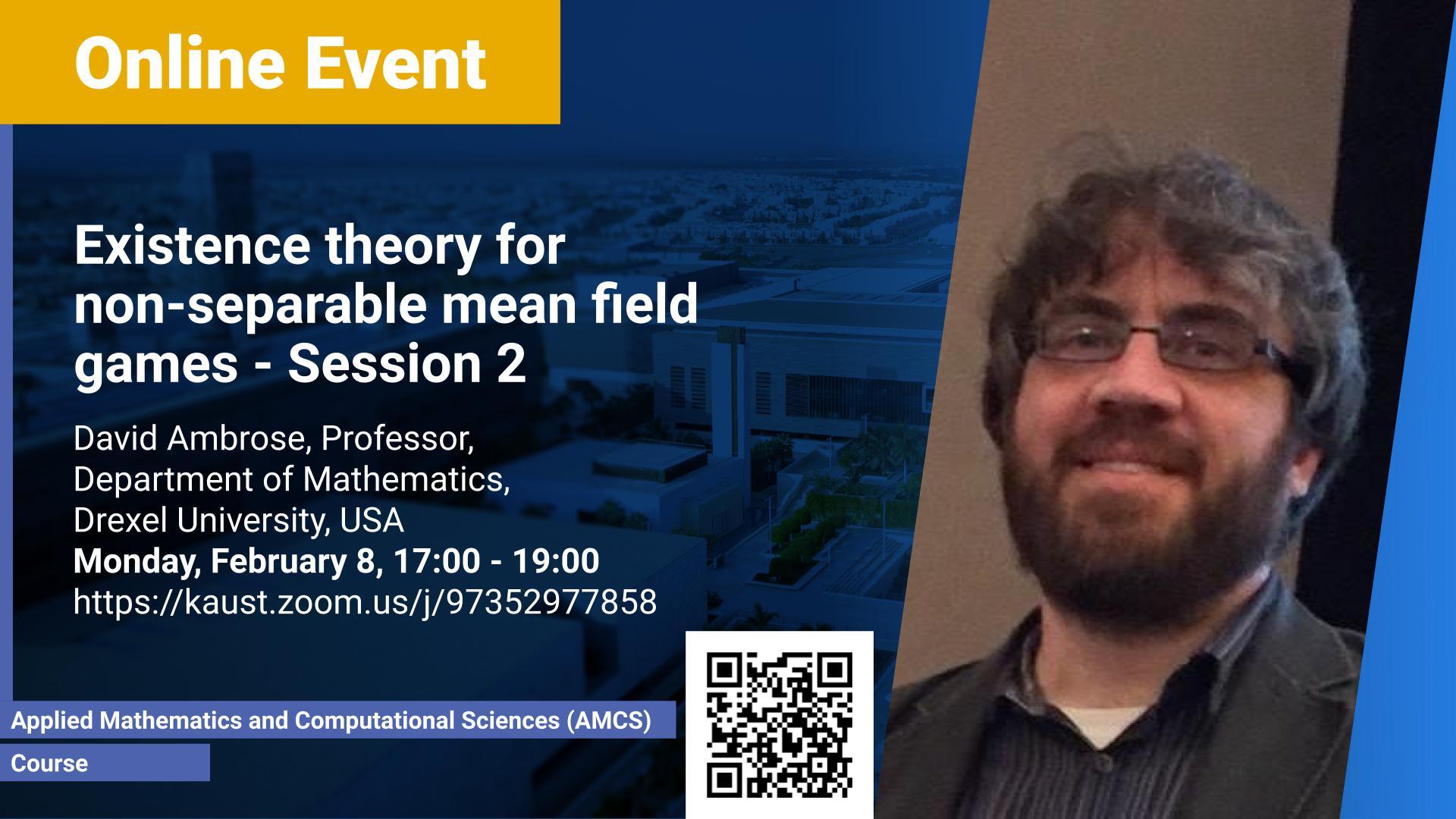Abstract
The time-dependent PDE system for mean field games is a coupled pair of parabolic equations, one forward in time and the other backward in time. The lecturer will demonstrate two techniques for proving existence and uniqueness of solutions for this system. The first of these techniques is inspired by work in fluid dynamics, as a similar forward-backward structure for vortex sheets was discovered by Duchon and Robert in the 1980s. Adapting the ideas of Duchon and Robert gives existence and uniqueness of solutions for the time-dependent mean field games system in function spaces based on the Wiener algebra. The second technique to be demonstrated by the speaker uses Sobolev spaces, and is an adaptation of the energy method to the forward-backward setting. Both of these methods require assumption of some smallness conditions; this smallness can generally take one of three forms, either smallness on the time horizon, the size of the initial data, or the strength of the nonlinearity. Such a smallness assumption is necessitated by the lack of structure in the equations, as we are not assuming separability of the nonlinear terms, and thus have neither convexity nor monotonicity to exploit. Mean field games models without separability do arise in applications, and we will demonstrate an existence theorem for a mean field games model of household savings and wealth.
Brief Biography
David Ambrose received the BS degree in Mathematics and Economics from Carnegie Mellon University, and subsequently earned his PhD in Mathematics from Duke University, working under the supervision of J. Thomas Beale. He held faculty positions at New York University and Clemson University before joining the Department of Mathematics at Drexel University in 2008. He has published over 50 research papers in existence theory and numerical methods for nonlinear systems of partial differential equations, studying problems with applications in fluid dynamics, combustion, and game theory. He has held visiting positions at the Isaac Newton Institute at Cambridge University, the Institute for Pure and Applied Mathematics at UCLA, and the Institute for Computational and Experimental Research in Mathematics at Brown University. Ambrose was the recipient of the T. Brooke Benjamin Prize from the Society for Industrial and Applied Mathematics in 2018.
